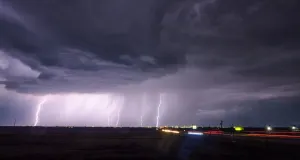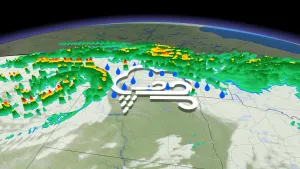Active Alerts Fort McPherson Airport, NT
Drink plenty of water regularly, even before you feel thirsty to decrease your risk of dehydration. Thirst is not a good indicator of dehydration.
Check several times a day on older family, friends and neighbours. Make sure they are cool and drinking water.
Reduce your heat risk. Schedule outdoor activities during the coolest parts of the day.
If you are in an overheated area, seek a cool place such as a tree-shaded area, splash pad, misting station, or air-conditioned spot like a public building.
Limit direct sun exposure. Shade yourself by wearing a wide-brimmed, breathable hat and/or an umbrella.
Never leave people, particularly children, or pets inside a parked vehicle.
Ask a health professional, such as a pharmacist or physician, how medications or health conditions can affect your risk in the heat.
Watch for early signs of heat illness (feeling unwell, fatigue, thirst, headache) as these can rapidly evolve into life-threatening emergencies. Move to a cooler environment immediately, such as a shaded or air-conditioned space.
When it’s hot, eat cool, light meals. Avoid using the oven.
Keep your house cool. Turn on your air conditioning (if possible), block the sun by closing curtains or blinds, or relocate to a cooler location such as a basement or public cooling centre.
All workers should take regularly scheduled breaks in a cool or shaded space.
Afternoon high temperatures will approach 30 degrees Celsius with early morning lows near 15 degrees Celsius.
This heat event will persist into the weekend for some communities while portions of the Delta will see cooling beginning late this evening.
###
Extreme heat can affect everyone’s health.
The health risks are greater for older adults, infants and young children, pregnant people, people with physical and/or mental illnesses, and people with disabilities or mobility issues.
Watch for the effects of heat illness: swelling, rash, cramps, fainting, heat exhaustion, heat stroke and the worsening of some health conditions.
Heat warnings are issued when very high temperature or humidity conditions are expected to pose an elevated risk of heat illnesses, such as heat stroke or heat exhaustion.
Please continue to monitor alerts and forecasts issued by Environment Canada. To report severe weather, send an email to NTstorm@ec.gc.ca or tweet reports using #NTStorm.









